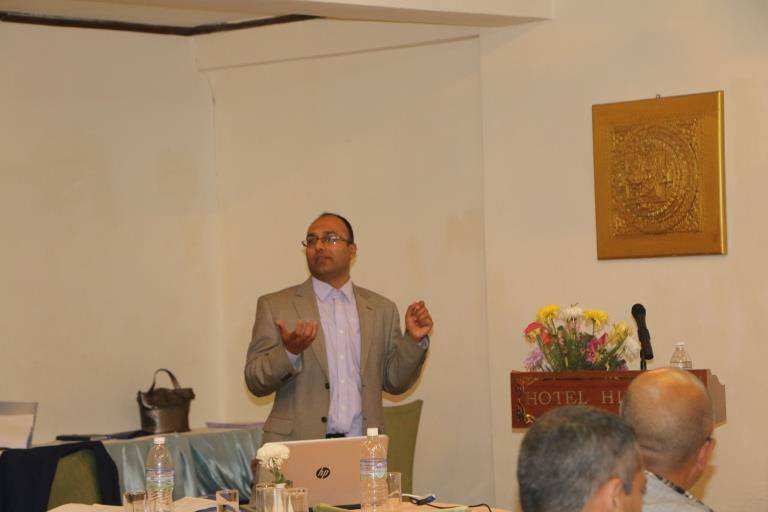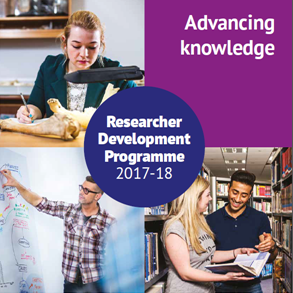Social mobility
Damien Hinds gave a speech at the Resolution Foundation on 31st July. The story was widely trailed in the media – it had a big focus on early years and on access to HE.
Mr Hinds said, in the speech in London, that this early gap had a
- “huge impact on social mobility”. “The truth is the vast majority of these children’s time is at home. Yes the home learning environment can be, understandably, the last taboo in education policy – but we can’t afford to ignore it when it comes social mobility. I don’t have interest in lecturing parents here… I know it’s parents who bring up their children, who love them. who invest in them in so many ways, who want the best for their children. But that doesn’t mean extra support and advice can’t be helpful.”
The Department for Education says 28% of children in England do not have the required language skills by the end of Reception.
Guardian – Children starting school ‘cannot communicate in full sentences:
- “The education secretary promised to halve within a decade the number of children lacking the required level of early speaking or reading skills.” Children with a poor vocabulary aged five are more than twice as likely to be unemployed at age 34 as children with good vocabulary, research shows.
Initiatives announced included:
- A competition to find technology to support early language development (there’s an app for everything….).
- An education summit in the autumn to encourage parents to get involved in supporting children
- An OfS research initiative (see below)
The OfS have confirmed that they are inviting tenders for an independent Evidence and Impact Exchange (EIX) – a ‘What Works Centre’ to promote access, success and progression for underrepresented groups of students.
- The EIX will be independent of the OfS, but the OfS will fund it up to £4.5 million over three years (£1.5 million per year) and work with it during this time to develop a sustainable funding model for the future.
- The purpose of the EIX is to provide evidence on the impact of approaches to widening access and successful participation and progression for underrepresented groups of students, and to ensure that the most effective approaches are recognised and shared.
- It will collate existing research, identify gaps in current evidence and generate its own research to fill those gaps, and disseminate accessible advice and guidance to decision makers and practitioners across the higher education sector.
- It therefore addresses a need in the sector for a systematic approach to evidence development, sharing and use in informing policy and practice.
- Tenders must be submitted by noon on Friday 28 September 2018. Tenders will be assessed by a panel of OfS staff and external assessors against published evaluation criteria. The top three tenders will be shortlisted and invited to interview in October 2018, with a decision to be made by November 2018.
- The EIX is expected to officially launch in spring 2019.
REF – the myths
Kim Hackett, the REF Director at Research England, has written for Wonkhe on REF myths following last week’s publication of the REF 2021 guidance.
She deals with the following myths:
- Only journal articles can be submitted
- The discipline-based UOA structure means that interdisciplinary research will be disadvantaged
- You can’t have a high-scoring impact case study based on public engagement (PE)
And invites comments on other myths that need to be busted.
NSS – the analysis
John O’Leary, Editor of The Times and Sunday Times Good University Guide, wrote a blog for the Office for Students on NSS. Some excerpts:
- Of course the NSS has its faults – even after last year’s introduction of improved questions, it remains an extremely broad brush exercise that unintentionally favours particular types of institutions and makes life difficult for others.
- The results do not provide the last word in the assessment of teaching quality, any more than the Teaching Excellence Framework as a whole does. But the results give the best available picture of students’ perceptions of their course – and it is difficult to see that being matched by any other exercise.
- The trends are generally consistent (and overwhelmingly positive) – so much so that politicians and commentators often resort to quoting much smaller, less representative research to support a critical narrative. Satisfaction levels may be down this year, but still 83 per cent were positive about their course and only 8 per cent dissatisfied.
- That is not to say that the NSS is perfect – in my view, it takes too narrow a view of students’ unions, for example, implying that their sole purpose is to represent their members academically. But more serious criticisms of the survey, that it encourages an ‘intellectual race to the bottom’ with lecturers dumbing down courses and reducing expectations to ensure positive results, are invariably anecdotal.
- The survey’s outcomes have also provided unique leverage for students to force through improvements to services and facilities. In particular, levels of feedback and assessment practices have been given a focus that would never have been applied without the negative views expressed in successive editions of the NSS.
- Even last year’s partial boycott of the NSS – now receding further – had more to do with the uses to which the results were being put at national level than dissatisfaction with the survey itself. Applicants would be much the poorer without the insight it provides.
Wonkhe have published some analysis and some interactive visualisations.
Migration and Brexit
The Home Affairs Committee have published an interim report, Policy options for future migration from the European Economic Area, which recommends that the Government should build migration consensus and engage in open debate and warns all those involved in the debate not to exploit or escalate tensions over immigration in the run up to withdrawal agreement.
The Committee is waiting on the Migration Advisory Committee’s (MAC) report in the autumn before making further recommendations, they stress that the Government ideally should not make final decisions on the majority of immigration policy in advance of the
Press Release: Government should build migration consensus and engage in open debate
The Committee has criticised the Government’s failure to set out detail on post-Brexit migration policy or to build consensus on immigration reform despite having over two years since the referendum in which to do so. Continued delays to the publication of the White Paper on Immigration and the Immigration Bill has meant there is little indication of what immigration policy will be. Despite the fact that the issue was subject to heated and divisive debate during the referendum campaigns in 2016 the Government has not attempted to build consensus on immigration reform or consult the public over future migration policy in the two years since. The Committee believes this is a regrettable missed opportunity.
The interim report looks at three broad sets of policy options:
- Within the EU and during transition there are further measures that could be taken, in particular on registration, enforcement, skills and labour market reform. As witnesses noted, the UK has opted not to take up measures which are possible.
- Within an EFTA-style arrangement with close or full participation in the single market, the report highlights a range of further measures that might be possible – especially in a bespoke negotiated agreement. These include ‘emergency brake’ provisions, controls on access to the UK labour market, accession style controls and further measures which build on the negotiation carried out by the previous Prime Minister. We conclude that there are a series of options for significant immigration reform that should be explored by the Government.
- Within an association agreement or free trade agreement, the options in part depend on how close such an agreement is. While any agreement itself may not cover many ‘labour mobility’ measures, the government will still need to make decisions about long-term migration, including for work, family and study.
Interim findings and recommendations include:
- The net migration target should not be an objective of EU migration policy.
- Refusing to discuss reciprocal immigration arrangements with the EU will make it much harder to get a close economic partnership. Geography, shared economic, social and cultural bonds between the UK and EU mean we will need a distinct and reciprocal arrangement for EU migration that is linked to our economic relationship.
- The Government has not considered the range of possible immigration measures and safeguards that could allow the UK to participate in the single market while putting in place new immigration controls. It should immediately do so. Should the Government change its red lines, there are a series of options which could provide a basis for greater control on migration within the single market.
- Even whilst in the EU and during the transition there are immigration reform measures that the UK has not taken up – in particular on registration, enforcement, skills and labour market reforms to address lack of skills, exploitation or undercutting.
- Irrespective of the future EU relationship, the Government should seek to improve labour market conditions. Regulation of the labour market, further measures to prevent exploitation and increased funding for enforcement would benefit both domestic and migrant workers, subject to practical arrangements with business.
- Within a Free Trade Agreement the options depend on how close the agreement is, but it is not the case that an FTA would necessarily mean limited migration. A free trade agreement along the lines of CETA would only require limited immigration provisions, but decisions would still have to be made on long-term migration from the EU and there would still be pressure for educational, high and low skilled, seasonal and family migration that the government would need to address.
- The DCFTA between the Ukraine and the EU gives a precedent for partial integration in the single market without requiring the free movement of people. The European Commission has said there can be no ‘cherry-picking’ of the four freedoms of the single market, however this is a political judgement rather than a technical or legal obstacle. The Committee notes that the EU-Ukraine package was agreed in the context of Ukraine moving towards the EU, rather than away, and the European Commission has so far insisted that, for the UK-EU negotiations, the four freedoms of the single market are indivisible.
- Whatever the Government’s intentions for EU migration, it should overhaul immigration arrangements for non-EEA nationals about which the Committee received many complaints. We heard considerable evidence of problems that would arise if arrangements for non-EU migration were applied for EU migration. The Government should also introduce a Seasonal Agricultural Workers scheme as soon as possible.
Chair of the Home Affairs Committee, Rt Hon Yvette Cooper MP, said:
“Immigration was one of the central issues during the referendum and it divided the country, but sadly there has been no attempt by the Government to hold any kind of sensible debate on it or build any kind of consensus on immigration since. That is deeply disappointing and it has left a vacuum—and it’s really important that people don’t exploit that again.
The misinformation and tensions over immigration during the referendum campaign were deeply damaging and divisive. It is essential that does not happen again, and those who exploited concerns over immigration during the referendum need to be more honest and more responsible when it is debated in the run up to the final deal. We are calling for a measured debate and consultation on immigration options instead.
We found there were a much wider range of possible precedents and options for immigration reform than people often talk about – including options that could be combined with participation in the single market – that we believe the Government should be exploring further now.”
Post-18 review
Nick Hillman has written a blog for HEPI on the cost of the student loans system.
- Opponents of the student funding model we have, which is characterised by high fees and taxpayer-supported income-contingent loans, regularly point out the shift from the old model to the current one may not save money in the long run. Arguably, HEPI was the first organisation to point this out.
- It is a clever debating point. It may well be true too, as could soon become much clearer if the way students loans are classified in the national accounts changes, as is widely expected.
- The danger for the health of our higher education sector comes in failing to recognise that one logical policy response to believing the current funding system could cost more would be to deliver less funding for each student (known as ‘a lower unit of resource’). Another would be to introduce much tougher repayment conditions so that more money comes back to the Exchequer (known as a lower ‘RAB charge’) – if you doubt the likelihood of this, take a look at the new reduction in the student loan repayment threshold in Australia.
- Are such changes really what opponents of the current funding model want? If not, what is the right policy response to the claim that the costs of higher education might have increased even during the austerity years? If we only deliver problems to politicians without mentioning our preferred solutions, we will not be well placed to complain when they deliver something we dislike. (There may be echoes of some of the arguments on Brexit here…).
- I said above it may be true that the current system will end up costing more than the old one. It is certainly widely believed and, as pointed out in the previous paragraph, the argument has taken us to a tricky place. Yet, in fact, it is only conceivably true if you intentionally choose to ignore the likely huge extra tax payments from additional graduates. They should provide a boost to the Exchequer that far outweighs any additional long-term costs.
Sector challenges
Mary Stuart, VC of the University of Lincoln, has written for Wonkhe on 21st Century Challenges. She looks at three drivers of change, technology, geography and globalisation and what she calls a “legitimation crisis” – the rise of populism and ant-establishment movements.
Adam Wright, Deputy Head of Policy (Higher Education and Skills) at the British Academy has written for Wonkhe on the market in HE.
- It seems unfair to blame institutions for not responding well enough to market conditions. Providers are responding to the perverse incentives and uncertainties that are produced by market competition, and yet their behaviour is characterised as anti-market. Moreover, the responses to policies, regulation, incentives and uncertainties are messy and occur at the micro-political level, the result of competing personalities, different governance processes, and bureaucratic standard operating procedures – as much as anything else…
- Both Government and the PAC look to the Office for Students (OfS) to make institutions (and students) behave as rational actors. OfS, whether it likes it or not, is now the very visible hand of the market. It’s now going to publish the salaries of vice chancellors and try to curb the excess, ignoring the fact that VC pay is the product of market forces and the encroachment of a corporate mindset on sector governance. This echoes the response to the financial crisis where the failures of unfettered capitalism were personified in individual bankers while the underlying contradictions of the free market were largely ignored.
His conclusion is that we need a new paradigm based on collaboration.
Consultations
Click here to view the updated consultation tracker. Email us on policy@bournemouth.ac.uk if you’d like to contribute to any of the current consultations.
New consultations and inquiries this week:
Subscribe!
To subscribe to the weekly policy update simply email policy@bournemouth.ac.uk
JANE FORSTER | SARAH CARTER
Policy Advisor Policy & Public Affairs Officer
66724 65070
Follow: @PolicyBU on Twitter | policy@bournemouth.ac.uk

 The Arts & Humanities Research Council and BBC Radio 3 are
The Arts & Humanities Research Council and BBC Radio 3 are  The Engineering and Physical Sciences Research Council (EPSRC) has published further diversity data related to peer review. This extension of data for Equality, Diversity and Inclusion (E,D&I) will highlight the progress made to date to improve diversity in their peer review process, and the opportunities to continue to work with their communities to make further improvements. Please
The Engineering and Physical Sciences Research Council (EPSRC) has published further diversity data related to peer review. This extension of data for Equality, Diversity and Inclusion (E,D&I) will highlight the progress made to date to improve diversity in their peer review process, and the opportunities to continue to work with their communities to make further improvements. Please 

 Other changes include new pages for both Micro-Projects and Regular Projects, with the application processes now clearly laid out in a step-by-step guide. Layout of the Programme’s specific objectives also has been improved and created a dedicated page for new Targeted Projects initiative.
Other changes include new pages for both Micro-Projects and Regular Projects, with the application processes now clearly laid out in a step-by-step guide. Layout of the Programme’s specific objectives also has been improved and created a dedicated page for new Targeted Projects initiative.


 The procedure is rather simple – together with a short video, fellow should submit a current CV including the following information:
The procedure is rather simple – together with a short video, fellow should submit a current CV including the following information: Bournemouth University currently hosts six MSCA fellows. If you have an excellent research project idea and need help in finding EU or other international funding source, please contact
Bournemouth University currently hosts six MSCA fellows. If you have an excellent research project idea and need help in finding EU or other international funding source, please contact 




 Every BU academic has a
Every BU academic has a  By clicking on this box, on the left of the Research Blog home page just under the text ‘Funding Opportunities‘, you access a
By clicking on this box, on the left of the Research Blog home page just under the text ‘Funding Opportunities‘, you access a 










 Connecting Research with Practice: FoodMAPP Secondment in Austria and France
Connecting Research with Practice: FoodMAPP Secondment in Austria and France Health promotion paper read 8,000 times
Health promotion paper read 8,000 times The Beautiful Work Challenge: On Birth
The Beautiful Work Challenge: On Birth Free event on Solutions to Inequalities in Dementia Diagnosis and Care
Free event on Solutions to Inequalities in Dementia Diagnosis and Care MSCA Postdoctoral Fellowships 2025 Call
MSCA Postdoctoral Fellowships 2025 Call ERC Advanced Grant 2025 Webinar
ERC Advanced Grant 2025 Webinar Horizon Europe Work Programme 2025 Published
Horizon Europe Work Programme 2025 Published Horizon Europe 2025 Work Programme pre-Published
Horizon Europe 2025 Work Programme pre-Published Update on UKRO services
Update on UKRO services European research project exploring use of ‘virtual twins’ to better manage metabolic associated fatty liver disease
European research project exploring use of ‘virtual twins’ to better manage metabolic associated fatty liver disease